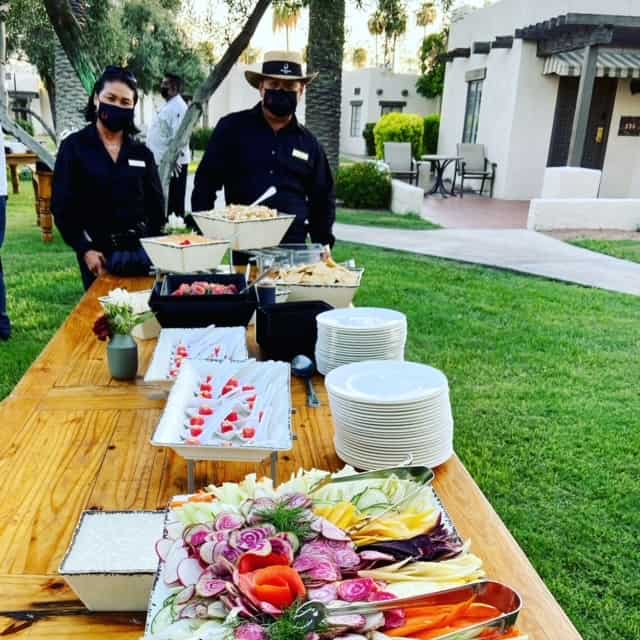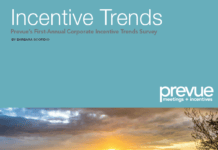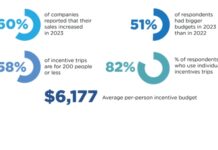
Roundtables led by a team from the Incentive Research Foundation and Prevue reveal a changing definition of wellness among meeting planners.
Wellness has long been a part of meetings and incentives. With COVID continuing to pose health threats and impact attendee comfort and confidence, meeting and incentives planners are looking at the concept of wellness through a different lens. At the fifth annual Meet Well Summit this fall, more than 50 meeting and incentives planners and suppliers from across the country gathered in at The Wigwam in Litchfield Park, Arizona, to experience wellness inclusions and discuss the changing definition of wellness during roundtables, which were summarized in a recent report.
As masked attendees participated in health screenings upon arrival, it immediately became clear that the concept of wellness has moved far beyond the healthy dining options, spa experiences, and morning yoga discussed in previous years. During facilitated discussions, attendees considered how factors such as health & safety, attendee mental health, physical health, food & beverage, and sustainability impact the overall attendee experience and level of comfort.
Mental Health Concerns
Where no one might have spoken about mental health before, it was a top concern during the roundtables. COVID seems to have raised more awareness of mental health concerns. Work-related team meetings are often check-ins with people, and there’s more transparency, vulnerability, and compassion.
The group discussed how attendees are different since the pandemic, and how they are more open about expressing their emotional needs. People have worked from home for so long, and coming back to a meeting is, as one planner put it, like “coming back into the sunshine.” The group also acknowledged that many attendees could have anxiety about being back in a group. Some people are ready to be part of the event, just not all of the event all day.
Give People Space
For safety and comfort, planners reported a trend toward smaller meetings and a strong desire for outdoor space for meetings and receptions. A lot of groups want small, local, boutique hotels, because they have fewer people in general and fewer leisure travelers. There’s a lot of interest in hotel buy-outs and, takeovers, and having a private space at a resort that is exclusively for their group.
Since attendees need more flexibility to feel comfortable in the current environment, agendas need plenty of space. Attendees may need more breaks, moments of solitude, opportunities to go for a walk or spend time alone in their room, and the option to take meals away from the group. Plan to provide attendees with extra physical space, such as time outside of the meeting room, space for social distancing in larger rooms, or wave planning to rotate people through rooms and transportation.
Healthy F&B Is Still Important
Healthy food and beverage options continue to be a mainstay of wellness inclusions. Personal and lifestyle choices and differences are more important than ever as people adapted to new eating habits while in lockdown. People are more mindful of the food they eat, but still expect food and beverage to elevate their experience. Planners are avoiding processed foods and offering more healthy options, including more fish entrees and innovative vegetable preparation. Careful attention to dietary restrictions is the shared responsibility of the planner and F&B team. Wellness and inclusivity can also mean fewer alcohol-centered activities and more thoughtful non-alcoholic beverage options, like locally-sourced fruit juices or signature mocktails.










